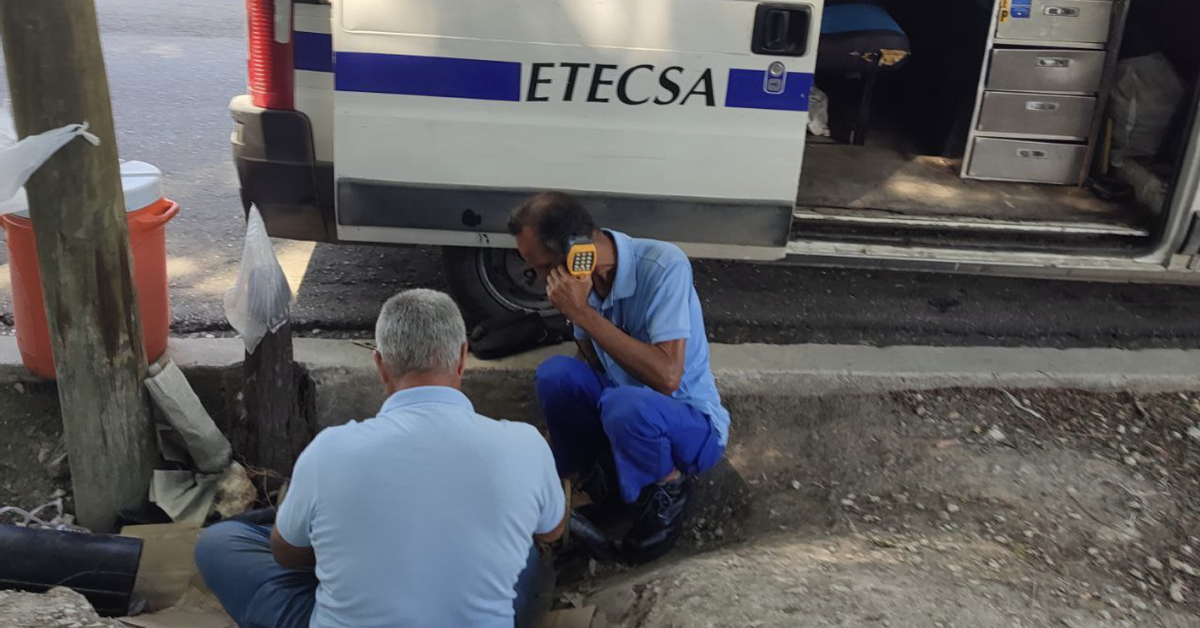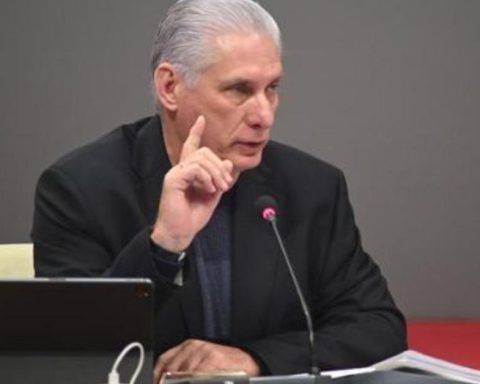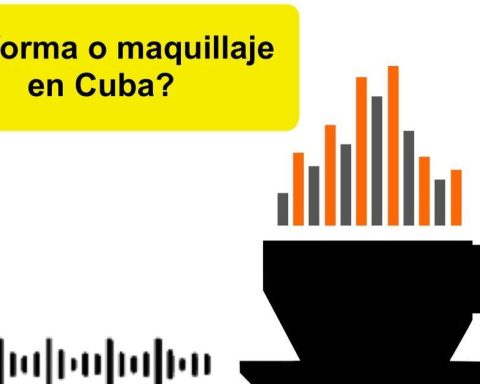Havana/Despite the precariousness of the facilities, in Cuba mobile telephony and internet access are essential services for millions of customers. However, according to a balance carried out by its managers, the state monopoly Etecsa does not have the means, much less the budget, to deal with the increase in network traffic or the breakdown of its equipment.
Etecsa’s first problem, said its president Tania Velázquez in a press conference last Thursday, is its base stations. Of the 5,600 that exist in the country, and that are responsible for replicating the telephone signal, half do not have energy backup. That is, when there is a blackout, they stop working and, due to the traffic overload in the rest of the bases, the connection slows down.
As if that were not enough, 10% of these systems “have failures in parts and components, which have not been able to be repaired or acquired due to lack of financial resources,” the company said in a statement.
How then does Etecsa deal with the more than 8 million Cubans connected to the network, of which 95% have access to the internet? The answer is not known even to the managers themselves, who assure that “in 2024, income from abroad was barely 10% of what the company needs” to stay afloat.
“In 2024, income from abroad was barely 10% of what the company needs”
In fact, the Nauta Hogar service has been installed in just 30,000 homes in the last four years: “despite having projections to expand the internet to homes, the lack of financial resources prevented progress in the investments necessary for growth and the maintenance of the network,” the company justified.
Fixed telephony is not experiencing its best moment either. At the end of 2024, more than 28,000 customers were suffering from “interruptions in service and the delay in their solution is also influenced by the lack of resources and technological obsolescence.” However, Etecsa assures that the responsibility does not fall entirely on its shoulders: there is “other damage to the public network, either due to vandalism or actions of third parties.”
The company even goes one step further and blames the low foreign currency earnings on foreign pages that profit from their offers of mobile data and calling minutes. “Although investments have been significant in the last decade, their execution rate has decreased starting in 2022 due to the decrease in foreign currency income, directly related to the evolution of the illegal exchange rate,” he alleges.
“Since this fact, fraud methods have proliferated that allow payments to be made in dollars from websites located outside of Cuba, which clone Etecsa’s offers and which are then converted into pesos taking advantage of the difference in the currency exchange rate,” he explains. the company, which values its losses due to these sites at “hundreds of millions of dollars.”
The millions that escape also have an impact, as he alleges, on the “sustainability of the company and the contributions to be made to the country.”
The millions that escape also impact the “sustainability of the company and the contributions to be made to the country”
Recently, based on a fine that the telecommunications company received for not using its entire budget in Cuban pesos assigned by the State for 2024 – a dead fund when it comes to investments and equipment purchases in dollars – the managers gave with the solution to all your problems: dollarize part of its services.
“The fine fell on us because when last year’s accounts were reported, millions of pesos had been left unused. The problem is that there was no way to use them, because with that you cannot buy anything that is needed to make repairs or new installations,” he then told 14ymedio Moisés, an Etecsa administrator in Old Havana.
The surplus was distributed as profits to the workers and, to avoid falling into the same problem, Etecsa has begun to plan how to sell certain services in “hard currency.” “Several scenarios have been evaluated and so far the one that seems to be implemented is to limit the number of recharges that the same client can make in national currency; from a certain amount or monthly amount it will be necessary to purchase the telephone fund in dollars.” clarified the administrator. “Along with the modality that we already have for recharges from abroad, purchases will be enabled in national territory, directly in dollars or with a Classic card.”
Officially, the company has not yet announced any changes, but clients are already warned: “We are working to create the conditions for the start of these actions, which will be informed and explained when they are ready,” the company added without further details. Thursday Tania Velázquez.
Officially, the company has not announced any changes yet, but customers are already warned
The few lines that define Etecsa’s future plans are buried by the few achievements that the company considers positive in 2024: greater use of payment platforms such as Transfermóvil or Monedero, the increase in mobile phone users and the assurance of connection in scientific, educational, health, domestic trade institutions and banking entities.
As for the submarine cable installed by the French company Orange in Arimao (Cienfuegos), whose development has become a kind of state secret, Velázquez limited himself to saying that “it is a well-executed and well-functioning project, through which it has been guaranteed, not “not only the increase in Internet access capacity, but also the diversification of Cuba’s international connection channels.”
This does not correspond to the perception of users, who have noticed a degradation of internet access and a reduction in speed since the protests of July 11, 2021.














